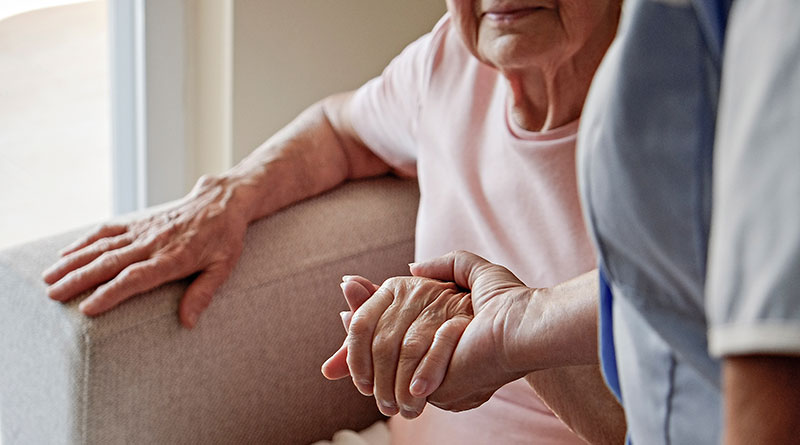Healthcare Leaders Call For ‘Full-Scale Cultural Shift’ To Future Proof Health And Social Care System
Leaders across the health and social care sector agree that a ‘full-scale’ cultural shift at a policy and organisational level is ‘urgently needed’ in order to fix the mounting crisis in health and social care. This follows the latest call from Lib Dem leader, Ed Davey, ahead of this weekend’s spring conference urging political leaders to ‘grasp the nettle’ and reach a cross-party agreement on social care once and for all.
During a recent roundtable discussion at the annual Nuffield Trust Summit chaired by Helen Buckingham, (Director of Strategy at Nuffield Trust), thirty senior leaders and healthcare experts gathered to debate the barriers that need to be overcome to realise the benefits of technology and ease pressure on the current, overburdened health and care systems.
According to Age UK, more than a fifth of people over the age of 80 have unmet social care needs due to a lack of available social workers and decades of under investment in the social care sector, in addition to an ageing population. This is putting an overwhelming demand not just on councils delivering care, but also on the wider health ecosystem where up to one in three English hospital beds are occupied by patients fit for discharge.
Delegates at the roundtable, including NHS directors, geriatricians, charity sector representatives and ICB leaders, called for more recognition around the ‘symbiotic relationship’ that social care has with the NHS when it comes to funding in order to free up capacity, reduce incidents of bed blocking and delayed hospital discharge. The health chiefs also concluded that technology must form part of the solution to ‘fill the gap’ between capacity and demand.
For instance, research shows that technology, such as remote monitoring in social care, can help to accelerate hospital discharge rates by up to 16 days, allowing people to return home where their needs can be met safely, freeing up bed space.
Addressing the roundtable, Matthew Taylor, Chief Executive of the NHS Confederation, said: “I think this is an opportunity for us to be clear about what we are ultimately trying to achieve in the digital space. This feels to be about four things; first, empowering patients to manage and optimise their own health and care; second, integration of services; third, using data to drive improvement, insight and innovation; and the fourth is to deliver a more devolved pattern of care.”
To overcome barriers within organisations to drive improvements, there was agreement among delegates that technology needs to be designed with end-users and their families in mind. Meanwhile, the Digital Healthcare Council noted that it should be committed to ‘at scale’ for longer periods of time. They stressed that there is a need to move away from the culture of short-term technology pilots in order to drive real change.
Speaking at the event, Catherine Davies, Director of the Digital Healthcare Council, said: “We need to give confidence to people who are implementing solutions through longer term programmes to build momentum, and we need to be able to implement digital innovations at scale. One of the solutions [the sector] has come up with is the Proactive Care Fund which allows organisations to try… new technology, by helping them to accelerate the procurement process and giving local authorities and ICBs access to matched funds to support with initial costs. This is a great example of problem solving.”
Nick Weston, Chief Commercial Officer at Lilli added: “There’s a critical need for a positive reframing of the social care sector to drive this culture shift, and break down the silos between primary, secondary and community care.
“We know the challenges, and we are seeing evidence already of the impact social care technology can have in supporting people to live more independently, which has a knock-on impact on our hospitals and emergency services while generating significant efficiencies and savings. It’s now about how we create the right environment to enable that digital transformation to take place across the whole ecosystem.”
Wrapping up the event, Helen Buckingham, Director of Strategy at the Nuffield Trust, said: “The technology exists, and the need for it is recognised. But it’s not just about the money to provide the kit; it’s about working together over time to create a big cultural shift so we can achieve the best outcomes for everyone.”
Lifestyle monitoring company Lilli is calling on the next government to prioritise digitisation across the social care sector, driving the take up of monitoring technology among ICBs and local authorities UK-wide. Health-tech experts say this will ease pressure on emergency services and the system more broadly, by creating less bed blocking and enhancing quality of life.
In just six months of adopting Lilli technology, North Tyneside Council acquired more than 7,000 additional carer hours and saved £132,757 by monitoring 40 people who were accessing services. In Nottingham, they were able to accelerate hospital discharge by as much as 16 days due to having the technology in place.






